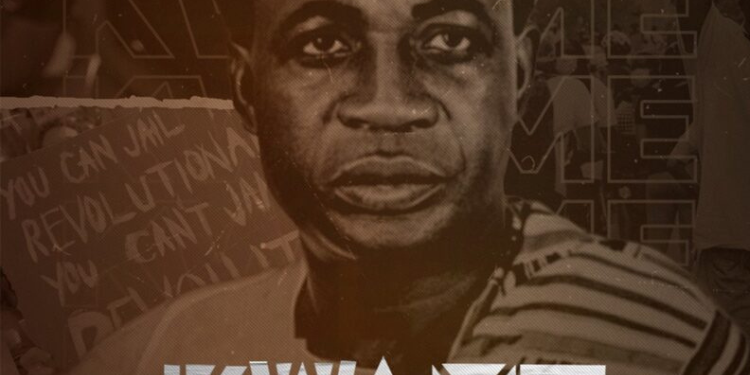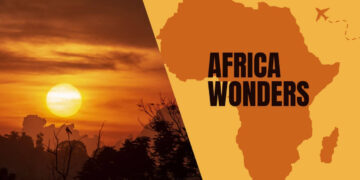In this collaboration, Kenyan rapper, Khaligraph Jones features Tanzanian musical artist, Harmonize, in a hip-hop and Afro-pop music genre titled, “Kwame”. The inspiration is drawn from Ghana’s first president, Kwame Nkrumah’s independence speech in Accra in 1957. Throughout the music, similar hand gestures to those of Kwame Nkrumah are seen as they chant “Kwame”. Khaligraph’s lines alludes to Nkumah’s speech, by likening himself to being a soldier like Kwame and also saying in swahili “Nimesimama kama Kwame” to mean “I am standing strong like Kwame.” Both Khaligraph and Harmonize draw inspiration from Kwame Nkrumah’s autobiography where he narrates the story of his childhood, education, relationships, politics up to when he led Ghana into independence and became the first president of the country. Through the lyrics in the song, both musicians express their mistrust in humans, a liking for honest living and courage to carry out daunting tasks as long as it is for the good of the people. All these attributes are an identity of Kwame Nkrumah described in his autobiography where he wrote about keeping a smaller circle of people he trusted to be able to achieve his goals and desires for Pan-Africanism. Why then would this be important for language localization?
Music as a tool for localization
In another article on The Rise and Rise of Lingala, we explain how Congolese music has dominated African airwaves since the onset of independence in Africa. In turn, Lingala, the language spoken by the Congolese and also used in their music continues to grow amongst Africans on the continent and beyond. Both Khaligraph and Harmonize command a great deal of followers in East Africa, Africa and beyond and through that they continue to create discourse amongst organizations and people looking to engage with Africans. The use of music in language learning is as old as one can remember. In this collaboration there is the use of Kiswahili, Sheng and English. Kiswahili and English, which are the official languages in both Tanzania and Kenya, and ‘sheng’, which is a slang mix of different languages initially identified with the urban youth of Nairobi, Kenya but currently spreading into Uganda and Tanzania. Through music, sheng finds a platform for an audience. A language localization guide for countries like Kenya, Uganda and Tanzania will certainly be appreciated more if the use of sheng is captured.
Music as a tool for identity in localization
The comment section of the song, “Kwame” is thronged by people from various parts of the continent applauding the duo for paying tribute to an African legend, Kwame Nkrumah, through their music. The discussion therein show how different people in the continent identify with the legend as well as questions about whether the Kwame being alluded in the song is who they know or it has a different meaning to the people in East Africa, where both musicians hail from. Luckily, the answer is clear in the music. It is through the comment section of the music that Ghanaian/West African audiences realize that Kwame Nkrumah is not known to them alone but is recognized by wider audiences as well. Thus Kwame Nkrumah becomes an identity that can be used in messages of liberation and resilience in achieving desired goals. Tiny details, such as an icon, hero, dressing or flags are often recognized by people can go a long way in making products, contents and services culturally appropriate.
Musicians as agents of localization
The role of musicians in localizing concepts, content and language cannot be undermined. It is through musical compositions that people’s cultures are seen and appreciated. It is often through music that agendas are created or amplified. Thus, music should not just be random mixing of rhymes, cords and chanting random words. Musicians are assumed to be agents of change and thus expected to have carried out research on current affairs in the political, social and economic front of the society. It is no wonder such musicians as Bob Marley, Miriam Makeba, Brenda Fassie, Lucky Dube, Oliver Mtukudzi, Hugh Masekela, just to mention a few, even in their death are still aligned with the agendas they amplified through their music. Khaligraph and Harmonize, through “Kwame” have revived memories of an African legend, Osagyefo Dr. Kwame Nkrumah, and his cause in Pan-Africanism. Conversations through the comment section shows people unified by the recognition and appreciation of this cause, even when some probably do not understand Swahili or Sheng.










